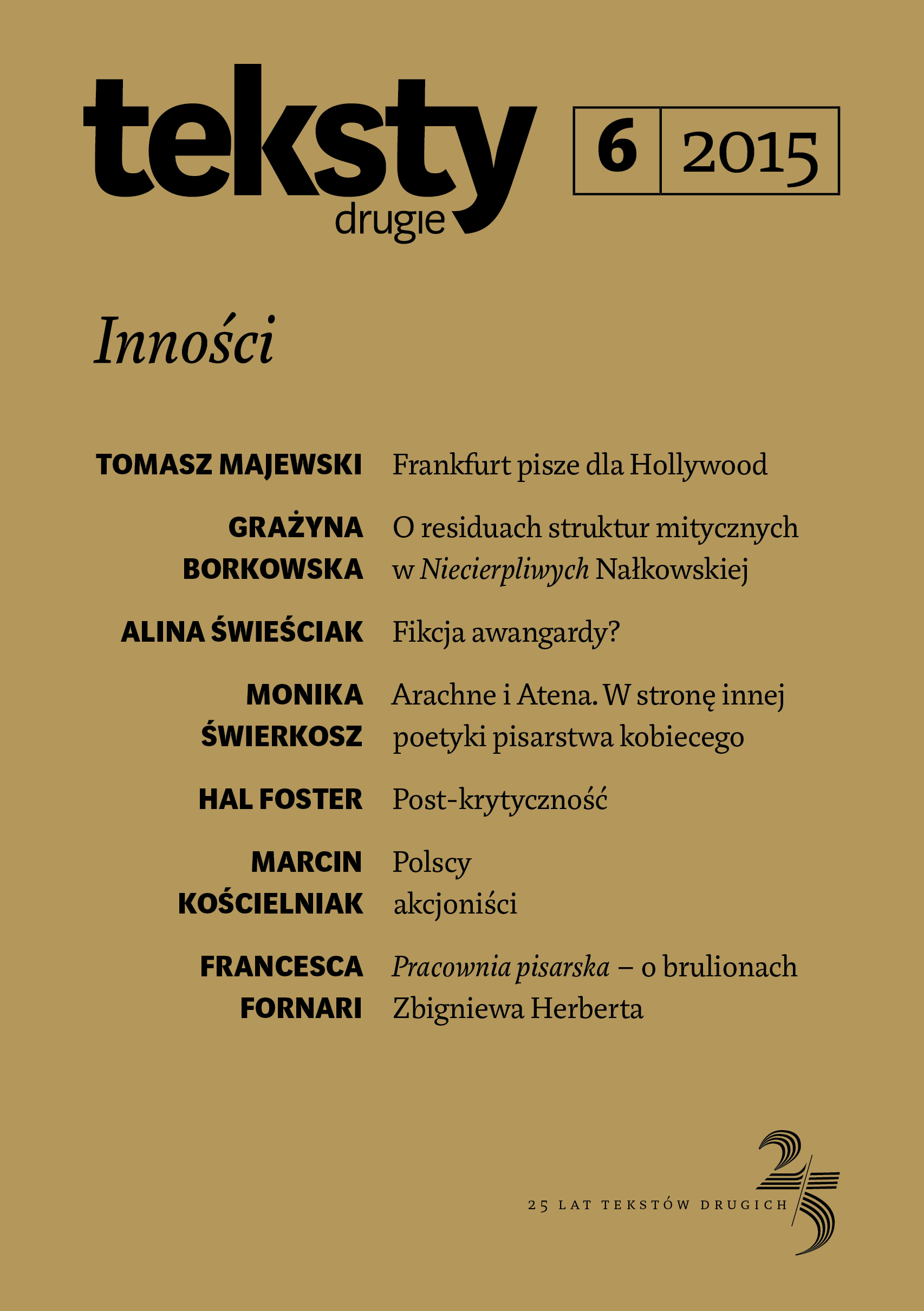
Zbłąkany Eros? Freud i mesjański witalizm
Review: Agata Bielik-Robson Erros: Mesjański witalizm i filozofia [Erros: Messianic Vitalism and Philosophy], Universitas, Cracow 2012
More...We kindly inform you that, as long as the subject affiliation of our 300.000+ articles is in progress, you might get unsufficient or no results on your third level or second level search. In this case, please broaden your search criteria.

Review: Agata Bielik-Robson Erros: Mesjański witalizm i filozofia [Erros: Messianic Vitalism and Philosophy], Universitas, Cracow 2012
More...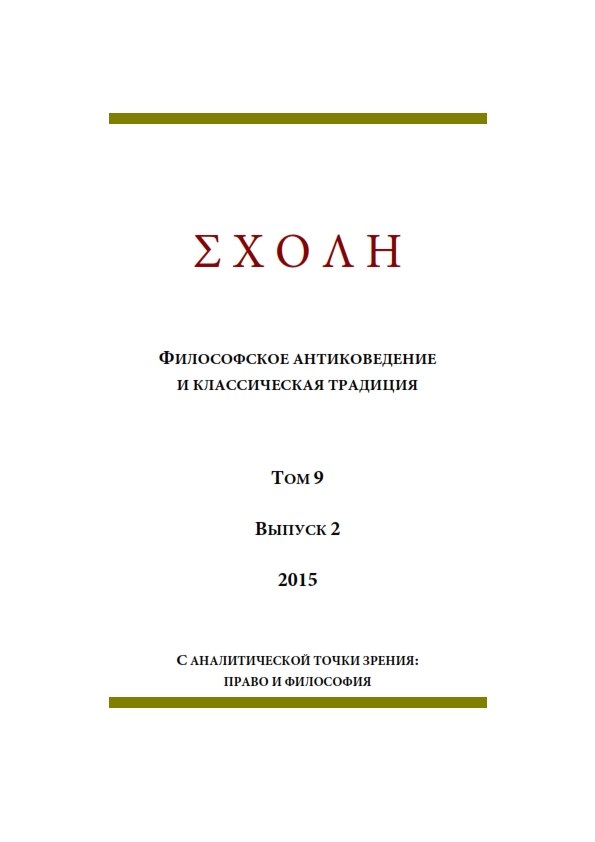
This article focuses on the role of the ancient Greek tragedy in the formation of a speculative philosophy. The author argues that the tragedy model is a prototype for the Schelling’s and Hegel’s speculative metaphysics. Its dialectical structure acts as the general means of resolving the philosophical contradictions between dogmatism and criticism, freedom and necessity, the subjective and the objective. The speculative system restored the identity of freedom and necessity through conflict. The comparative analysys of the idealistic “philosophical tragedy” and ancient Greek tragedy revealed their deep internal relationship. Based on Szondi, Lacoue-Labarthe and Bataille, the author argues that the speculative tragedy, based on the principles of Aristotle’s theory of catharsis, and the mimetic nature of dialectical thinking are closely linked with the poetics of the tragic action, recreating the ritual forms of sacrifice.
More...
Sophists and rationalists that constitute the foundation of enlightenment philosophy, who were named as first age proponents of the enlightenment, must be mentioned before we talk about 18. Century’s “Enlightenment Age” thinkers. Sophists, who are B.C. V. and IV. Century thinkers, placed the human at the center of their philosophic thoughts therefore nature philosophy was brought to second place of importance in Greek philosophy and human philosophy obtained the first place. Sophists, the thinkers of Greek enlightenment, followed the way of filtering everything with their minds against the traditional Greek thinking based on beliefs. Protagoras who said “Man is the measure of all things”, Gorgias who said “Nothing exists; even if something exists, nothing can be known about it; and even if something can be known, knowledge about it can't be communicated and explained to others”, Antiphon who said “Naturally we are all created same in everything” and Thrasymakhos who said “Justice is the advantage of the stronger” and Kallikles who had ideas that remind “Übermensch” doctrine of A.D. 19. Century thinker Nietzsche are the most significant representatives.
More...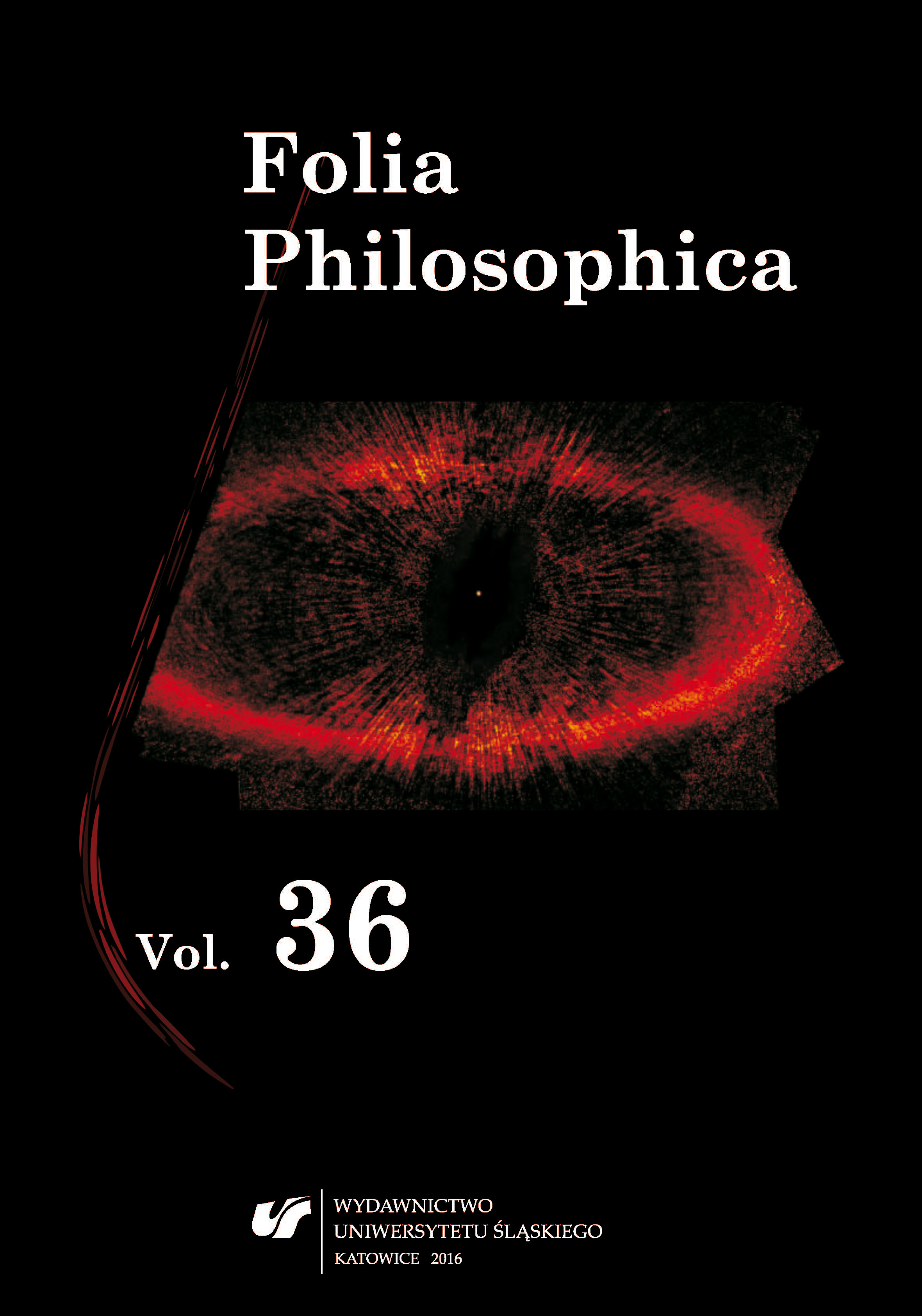
In 1904, Paul G. Natorp (1854—1924) published his lectures on general psychology. This article shows that this purely philosophical, yet systematic work describes those issues of psychologism and psychology which would prove most important to the intellectual life of Europe at the turn of the century, and which Natorp interprets in accordance with the provisions of transcendental philosophy. From the perspective of a representative of the Marburg School of Neo-Kantianism, he outlines the philosophical profile of the subject and the method of psychology. He focuses his discussion on the problem of understanding consciousness and highlights the following elements: the content of consciousness, the consciousness of Ego and the relationship between the content of consciousness and the conscious Ego. His analysis is performed from the bottom up (physiology), depicting the mechanics of the operation of the human nervous system. The article addresses the question of the critical interpretation of Paul Natorp’s general psychology, with emphasis on cognitive and relational functions of consciousness (Bewusstsein).
More...
Makale, ünlü sufi ve düşünür Celalaeddin Rumi’nin XIX yüzyıl Azerbaycan düşünürü A. Bakıxanov’la ilgili edebi konuların ilmi tahlilini konu edinir. Yazıda, Azerbaycan’dakı ilim adamları ve eleştirmenlerin konu ile ilgili düşünceler üzerinde durulmuş, A. Bakıxanov’un eserlerinde Mevlana’dan yapılmış alıntılar tespit edilmiştir. Her iki düşünürün eserlerinde konu, yapı ve didaktik amaç bakımından benzerlikler araştırılmıştır. Manevi sansür karşısında Bakıxanov’un Mevlana sanatından nasıl faydalandığı üzerinde durulmuştur.
More...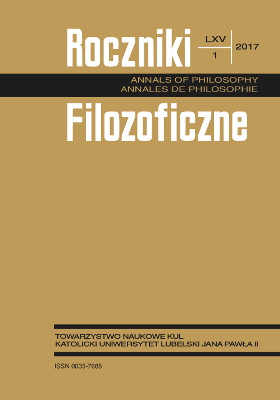
This article interprets Eckhart’s contradictions by presenting them as a result of an existential search for salvific power. It is shown that power is ambivalent in nature: it is the power of what is and the power of (self)overcoming (of what is). Just because power is in itself ambivalent and the process of searching for it existentialist (so not completely conscious), Eckhart’s mystical texts are full of contradictions and the German mystic is apparently not aware of it. The sample of them is shown in this article with regard to his ideas on God and man. Three other interpretations of Eckhart’s (“apophatic,” “educational,” “methodological”) are presented and argued against.
More...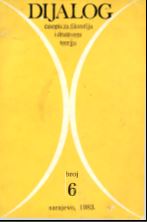
Lektira njemačkog idealizma — poglavito Hegela, Schopenhauera i Kanta — koju sugerišu Horkheimerovi tekstovi koji obilježavaju nastupanje prve Kritičke teorije ostaje, bar prividno jako, ovladana utjecajem jedne epistemologije koja se još nije istinski distancirala prema marksizmu. Otuda ≫simptoma tsko≪, filološki malo zadovoljavajuće čitanje djela. Jedino razjašnjavajući takvo čitanje koje dovodimo u vezu sa teorijskim projektom koji je izradio Horkheimer tokom tridesetih godina moguće je zapaziti značenje u njemu i ≫istinu≪ u hegelovskom smislu.
More...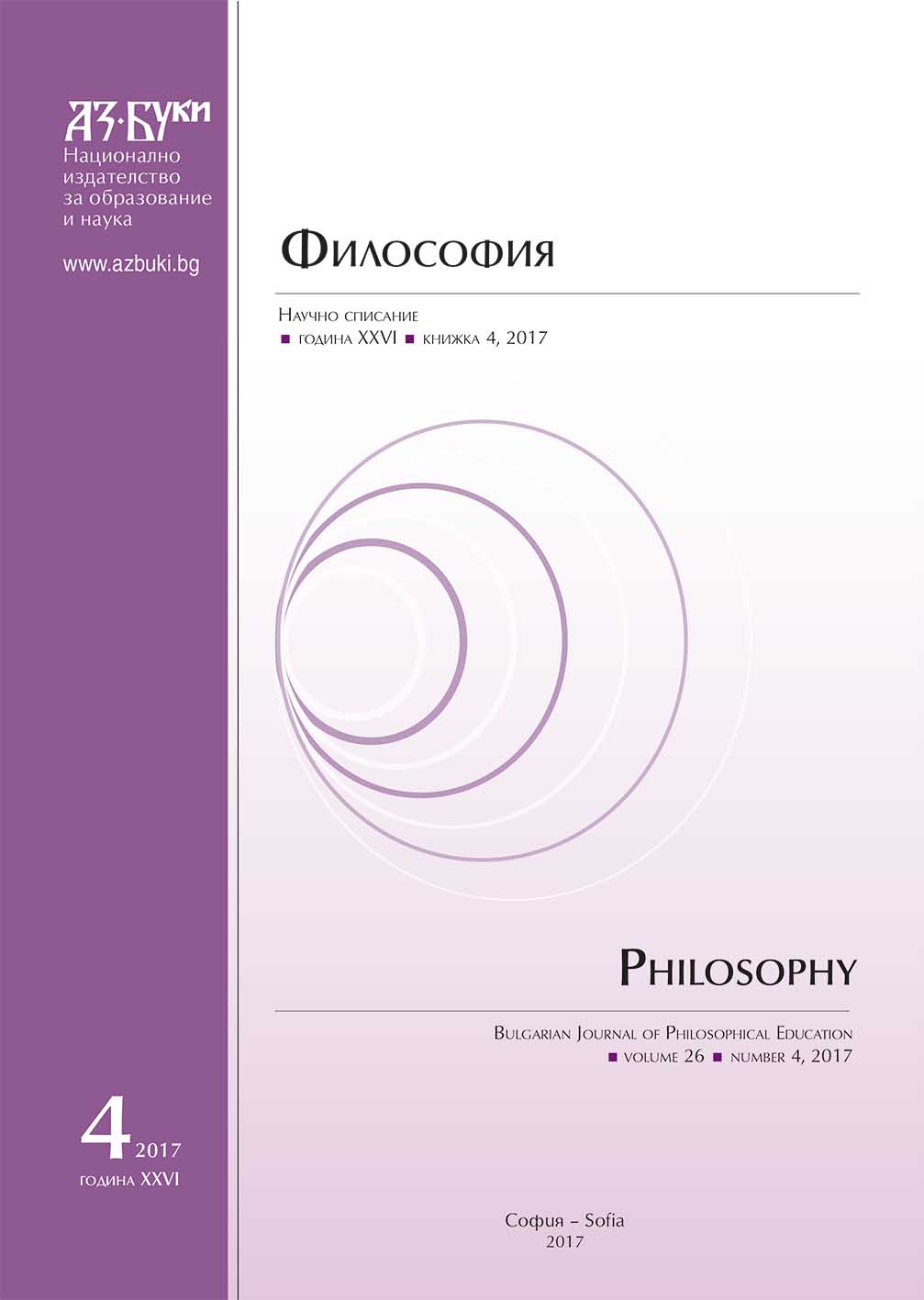
This article discuss the relationship between stoicism, scepticism and unhappy consciousness in Hegel’s “Phenomenology of Spirit” and George Byron’s play “Cain”. The Byron’s biblical hero Cain, a son of Adam and Eve, raises a number of philosophical questions and like Hegel’s concept of scepticism, revolt against the established heavenly norms and laws. Through the knowledge that comes from Lucifer and like Hegel’s unhappy consciousness, Cain reaches the self-consciousness for himself.
More...
This statue will pose the question for the truth beyond language constituents in its defining and achieving and from this point toward its modeling grounded above all on cognitive parameters. The concrete solution will be searched concerning Wittgenstein’s conception, offered in Tractatus Logico-Philosophicus, for the “truth-conditions” of a proposition in logical space as its “representing relation” and for the way through which the proposition structures logical space. We will search whether this will be a legitimate version of a “logic of truth” in the sense of Kant, and which elements of Kantian logical project can be applied for the division of logical space for the cognition of an object and its cognitive dislocation in logical universum, exactly from the point of view of the whole cognitively and objectively formed universum. How we can outline the approaches, the algorithm of a “real-objective” calculation of the object value in the logical space.
More...
Vladimir Solovyov has his own unique presence in the philosophical discourse of beauty and love. His endeavor to achieve integrity and completeness in the reincarnation of nature and man is reflected in the presented article.
More...
The unity of freedom, science and nation, viz. liberalism, positivism and nationalism, as well as his belief in two fundamental principles – freedom and justice, were the two lodestars and credo of Vladimir Jovanović`s entire political work and view of life. Although he was strongly inclined to the continental liberalism, he corrected it with Millian liberalism and embracement of the Westminster system, thus avoiding the radicalism of the French role model, which was followed by the prevalent majority of socialist and Marxian-oriented Serb intelectuals in the second half of the XIX century and the first half of XX century. Vladimir Jovanović firmly belived that liberty was the right exercise of which must not be blocked out by the ideal of equality. As a positivist, he appreciated Herbert Spencer’s theory of evolution, organic interpretation of society and analogy between the natural and social domains, according to which social phenomena could be reduced on natural laws. Under Mazzini’s influence he made a synthesis of liberalism and nationalism. Vladimir Jovanović`s son Slobodan Jovanović pointed out that unity of freedom, science and nation was not founded in sciences itself, but in rationalist philosophy. Liberalism, positivism and patriotism were not only concepts of Vladimir Jovanović`s political theory, but also ideological basis for his active political work.
More...
The question of the importance of education in democracy is as old as democracy itself. Greek thinkers devoted much of their fruitful oeuvre to the concept of education, aiming at realization of better and more just life in the community. Modern thinkers, especially Locke, Rousseau and Mill, showed great interest for the issue of education of citizens in the democratic societies of their time. Dewey emphasized the importance of education in democracy like no one before, or after him. He devoted a significant part of his extensive work to the question of the role of and the kind of education that is fundamental for the members of community who want to prepare for participation in public life, in the best possible way. The issue of interrelation of democracy and civic education completely neglected after Dewey, again become relevant with appearance of deliberative democracy. Following Dewey’s tradition, I will argue that the form of democracy that calls for broad participation of citizens in solving public problems requires some education. The ability of people to participate in public deliberation depends on whether they have acquired certain skills, values and knowledge.
More...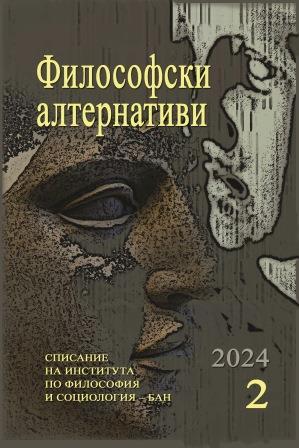
The article highlights the main points of the specificity of metaphysics in the European philosophical tradition. The division of wisdom as a unity between knowledge and practice in ancient philosophy is emphasized. Kant's thesis that metaphysics is possible only in the realm of practical reason and only as a metaphysics of freedom is recapitulated. The forms of transcendence are revealed. Two approaches regarding metaphysics are analyzed – as a metaphysics of “questioning”, the logos type, and of a metaphysical act as overcoming causal dependencies in human individuality and truly achieving freedom.
More...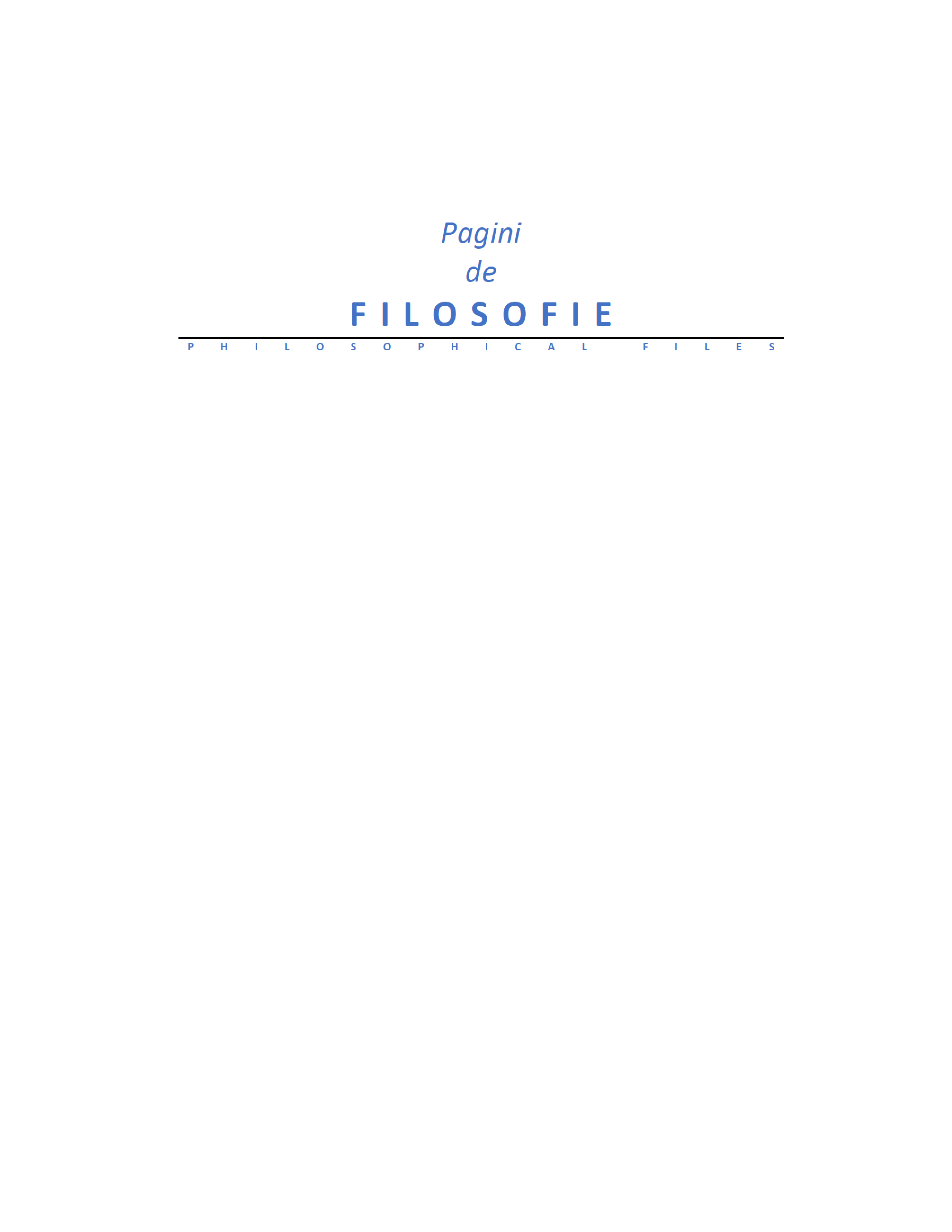
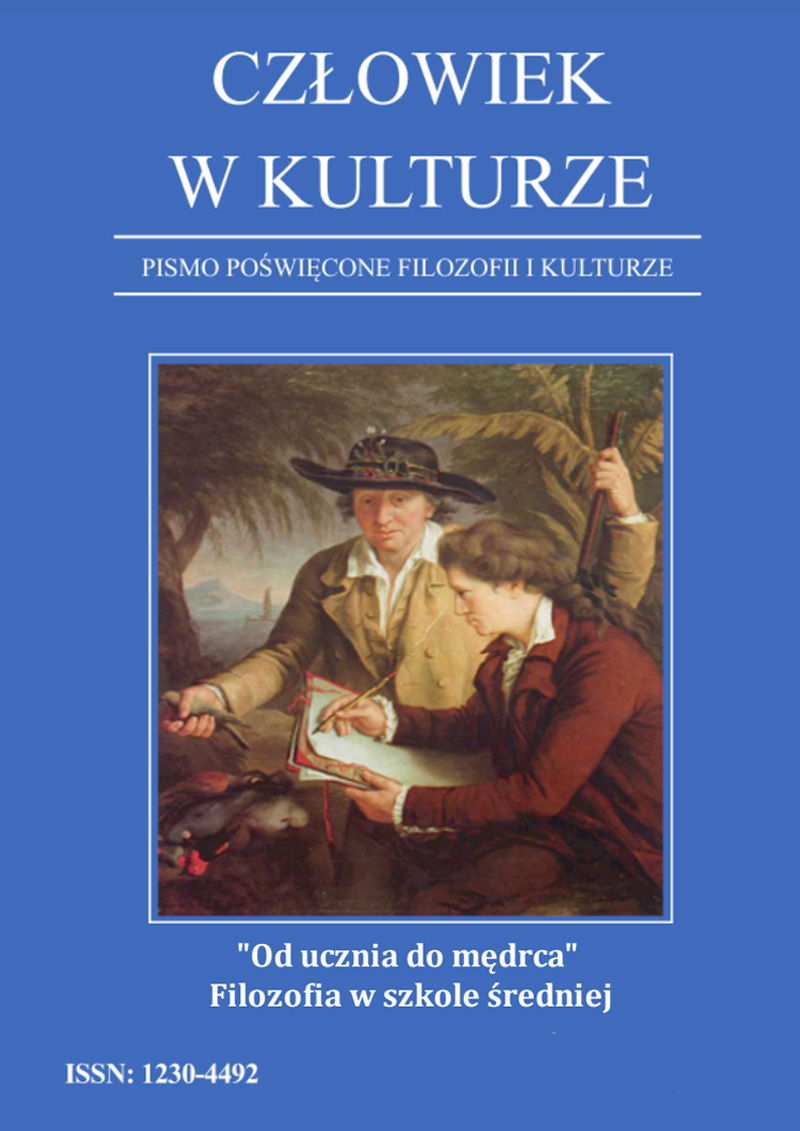
Review of: Universal Encyclopedia of Philosophy, ed. A. Maryniarczyk, Vol. 1 (A-Ch), Lublin 2022, Polskie Towarzystwo Tomasza z Akwinu, ss. 1390 (ISBN 978–83–65792–34–1; ISBN 978–83– 65792–35–8 Vol. 1).
More...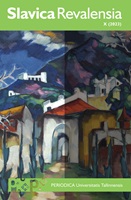
Review of: Велижев М. Чаадаевское дело: Идеология, риторика и государственная власть в николаевской России. М.: Новое литературное обозрение, 2022
More...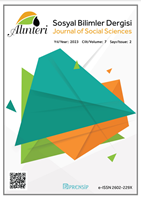
Analytic philosophy is a movement which emerged as a reaction to traditional philosophy around the end of the 19th century and the beginning of the 20th century. Analytic Philosophy of Education emerged partly as a reaction to traditional philosophy of education and partly with the desire to apply the general principles of analytic tradition in education. American Israel Scheffler and English Paul H. Hirst have produced many works since 1960s and so they are considered among the eminent philosophers of this field. In this study, the concepts of “critica/rational thinking” and “autonomy” have been studied and analyzed in the works of these two important figures. By adopting an analytic approach, firstly their arguments and propositions as regards the different educational topics have been classified and analyzed. Then their opinions as regards how they interpret these concepts, how importance they attribute to them and how these concepts can be used in education have been analyzed extensively. It has been found that critical/rational thinking can be seen as both the ultimate aim of education and the best means to reach this target for both philosophers, particularly for Scheffler. When it comes to the concept of autonomy, both philosophers think that every individual has an innate value and human dignity and so every person must have the right of free choice through rational thinking.
More...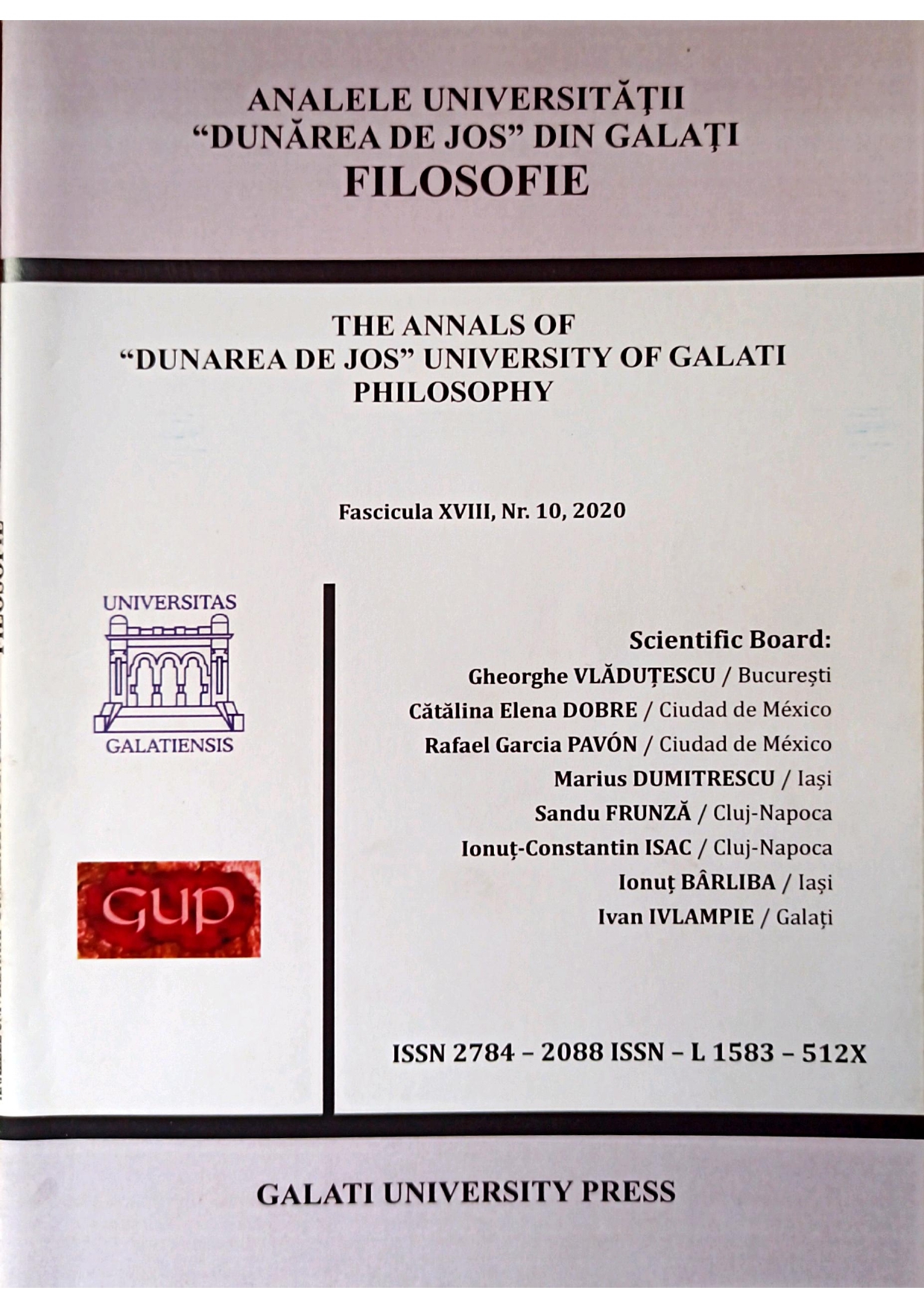
At the beginning of the XIX-th century, Fr. Schleiermacher was the first thinker who attempted both to maintain the validity of Christian doctrine and to keep the pace with the modern outlook of the world, as it was shaped by the Enlightenment. He engaged in this task by re-interpreting most of the major doctrines and concepts of Christianity, so that they may preserve, at least partly, their implications for human life, but without conflicting the scientific and rationalistic view of the Universe. Traditionally, Christianity based its spirituality on a theistic and transcendental „God”; this assumption was highly problematic for the naturalistic and rationalist outlook of Modernity. In order to preserve the foundation of spirituality, Schleiermacher reinterpreted the concept of divinity, as the Organic Whole, as the interconnected and harmonious Totality. Hence, he succeeded both in discarding the non-natural repellent elements of the concept of „Divine” and in preserving some key imports of this concept, such as unity, universality, harmony and sense. As Totality, immanence becomes the new divine; it is a natural divine but still preserving a degree of concealment, as a result of its magnanimity. In spite of this immanentization of the divine, spiritual endeavors are still justified by the need to cover the gap between the „sinful” limited perspective of a human and the Holistic perspective which reveals the „spiritual” meaning of the Universe. The old ontological dualism between the „fallen” immanence and the „sacred” transcendence is abolished; the identification of the divine within immanence means the predicament of the ultimate divinity of the Universe. „Sinfulness” becomes only a matter of how humans see and experience the natural. Thus, Schleiermacher succeeds in „redeeming” the natural, making it the ultimate foundation of everything, including spirituality. The traditional attributes of God are reinterpreted so that they may not mean anymore personal traits but natural aspects of the Universe. Hence, love, as the ultimate reason for all divine actions, is interpreted as the natural causality that maintains the harmony and the order of the Universe. God's almightiness would mean nothing else that the universality of causal regulation. Creation ceases to be a particular event and is interpreted as an ontological condition of the Universe, namely that of being imbued with the „divine” harmony and unity. Some traditional theological elements, which couldn't be adapted in any way to the Modern outlook, were utterly discarded, the most important of these being the doctrine of the Trinity. Religion becomes a natural issue namely the way an individual being relates to the Whole. The traditional opposition between godly and ungodly is replaced by the opposition between the holist view and the individual limited view. In spiritual life, the divine is present not as a particular entity but rather as the infinite possibility of expanding one’s perspective until reaching the universal level. The divine is minimally described as the indefinite universality, on which the individual being feels absolutely dependent.
More...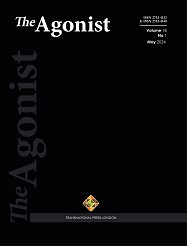
Review of: Henk Manschot, Nietzsche and the Earth. Biography, Ecology, Politics. Bloomsbury, 2021, 200 pp.
More...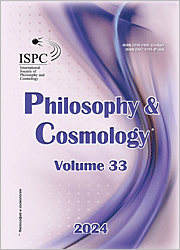
Objective. To show that despite the enormous efforts of M. Heidegger, he failed to find a new way of thinking. Scientific novelty. It is shown that the meeting of two different streams of historical thinking – the destructive thinking of Heidegger, who never stood on the ground of the Pre-Socratics (although he strived for this all his life), and the Pre-Socratic, which gradually lost its vitality in subsequent European culture, never took place. The different streams of thinking – the ancient Greeks and Heidegger – never crossed. The early Greeks sought to understand the nature of essence, that is, they were looking, according to Heidegger, for the first beginning of thinking (and for this they tried to use the tools of openness of thinking, but did not understand its reasons), while Heidegger, who consistently went through a long path of liberation from all the European ones known to him methods of understanding nature, on the contrary, sought to find ways to understand the true nature of human existence, that is, he looked for the second principle of thinking (but also failed to reveal its origins). It was found that European culture throughout its history has stopped between these two extreme streams of thinking – aimed, on the one hand, at the world of things (essence) and, on the other, at the inner world of man (existence), but in both of these streams there are genuine the beginnings of thinking remained unheard. The analysis shows that throughout his life, Heidegger was looking, in fact, not even for being, but for the being of thinking; more precisely, he was looking for thinking that could exist synchronously with the thought of the ancient Greeks, which allowed him, on the one hand, – to reveal the fall of European culture, and on the other hand, to try to find the motives for future thinking. In our opinion, Heidegger heard the main problem of European culture: logos does not illuminate thinking, does not carry either natural or divine light, it is only similar to a given (often artificial) logical scheme. All ancient religions spoke about this. The ancient Greeks knew this; Plato and Aristotle replaced the true divine light with a system of ideas, concepts, categories and logic. It seems that the concealment of the true light (nature and gods) is the path of the fall of European culture, about which Nietzsche, Wagner and Heidegger wrote. Thinking exists only where consciousness disintegrates in the spatio-temporal topos of its existence. And logos, as this study shows, can only exist in a split consciousness. Based on this, it is increasingly clear that we have not learned to think like the Greeks and, moreover, in our selfishness we may finally lose this opportunity. On my own behalf, I would like to add: what Heidegger failed to achieve can be clarified along the paths of contact between Western and Eastern thought.
More...